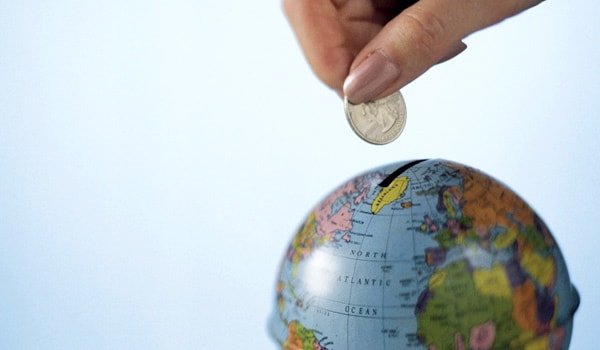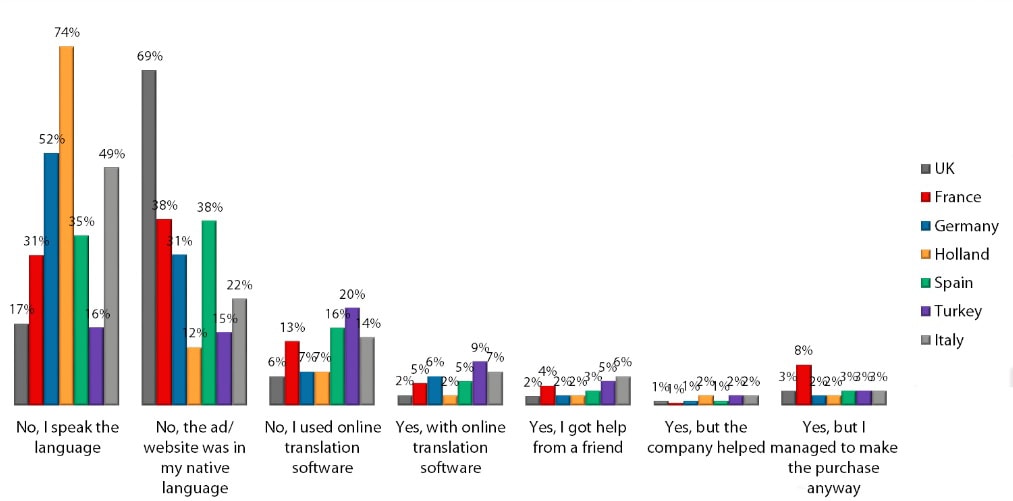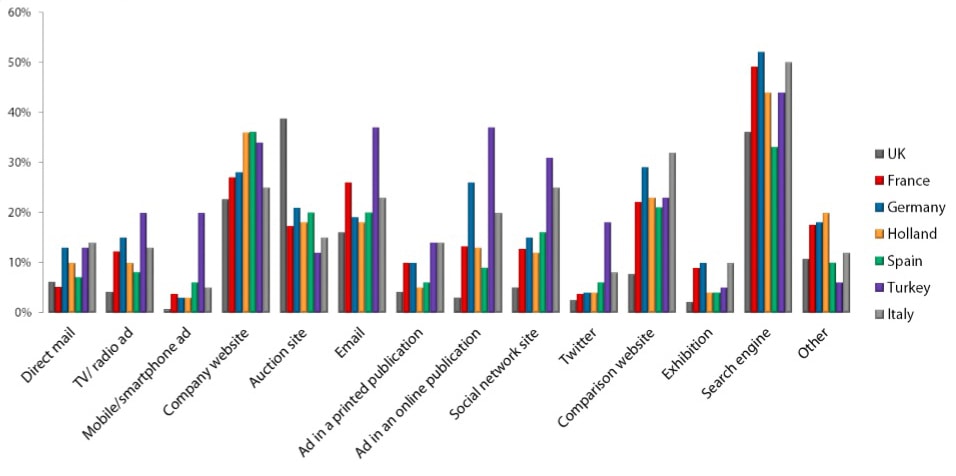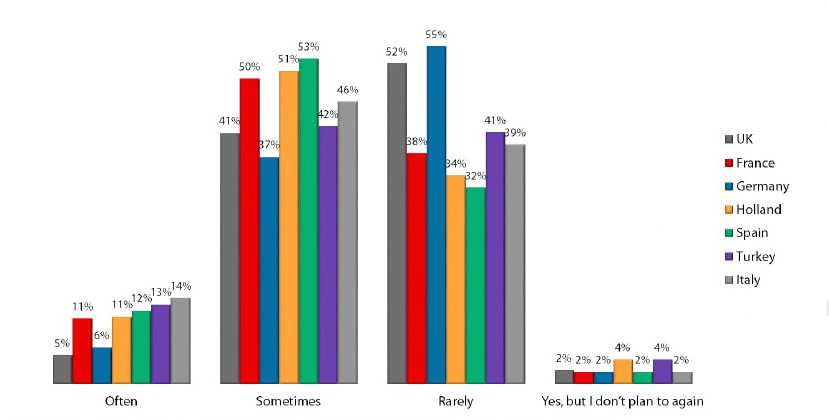 For PR agencies with foreign clients looking to sell goods directly to UK consumers, be warned, Brits have a pretty parochial view when it comes to buying from abroad. The French, for example, are twice as likely to buy foreign goods direct as we are.
For PR agencies with foreign clients looking to sell goods directly to UK consumers, be warned, Brits have a pretty parochial view when it comes to buying from abroad. The French, for example, are twice as likely to buy foreign goods direct as we are.
The key is language. New research reveals that many potential sales to the British are literally lost in translation (or lack of it).
Did you encounter any language problems during the purchase of the goods/services?

During February and March, fast.MAP asked consumer panels comprising British, French, German, Dutch, and Spanish adults about the goods and services they bought direct from foreign countries. A key finding was that language presented more problems in some countries than others.
For example, three quarters of the Dutch, half the Germans and a third of the Spanish who bought direct from abroad spoke the language of the country marketing the goods, whereas seven in ten in the UK and four in ten in France bought from native-language websites.
A fifth of Turks, 15 per cent of Spanish and 14 per cent of Italians (average is 12 per cent across the seven countries) overcame problems by using translation software. 9 per cent of Turks; 7 per cent Italians; 5 per cent Spanish; 4 per cent French encountered translation software problems. The French were the most likely to persevere and 8 per cent bought despite the difficulties.
Exporters are not well prepared to cope. They only offered translation help to 2 per cent of Dutch, Turks and Italians and 1 per cent of Brits, French; Germans and Spanish.
If you have clients who are selling or planning to sell direct to consumers in France, Germany, Holland, Spain, Turkey and Italy or into the UK, it might be helpful to know that the largest group of buyers in all those countries used search engines to source foreign goods and services.
Where did you hear about the goods/services you bought?

Across the seven European countries search engines drive an average of 44 per cent of foreign direct purchase. Three countries are above this average: Germany 52 per cent, Italy 50 per cent and France 49 per cent.
Company websites drive an average of three in ten direct foreign sales; comparison websites around a quarter (including three in ten in Italy and Germany); email an average 23 per cent; and mobile ads an average of 6 per cent (the latter includes a massive 20 per cent of Turks).
Across the seven countries an average 6 per cent bought at exhibitions (including 1 in 10 of the French, Germans and Italians). An overall average of 1 in 10 also bought via direct mail.
An average 12 per cent were motivated by a TV or radio ad; one in five via an auction site; and 14 per cent in Turkey and Italy bought because of a print ad.
Online ads motivated 37 per cent of Turks, a quarter of Germans and a fifth of Italians; and an average of 17 per cent across all seven European countries bought goods on social media (a figure boosted by 31 per cent of Turks and 25 per cent of Italians).
In the last year have you bought any goods/services direct from other countries?

For clients thinking of dipping their toes into the European direct marketplace, Italy might be a good place to start, since 14 per cent of Italians often buy goods direct from other countries, compared with only 5 per cent of the British (less than in any of the other six countries) followed by 6 per cent of Germans.
Other countries where people often buy direct from abroad are France 12 per cent and Turkey 13 per cent. Half of the French, Dutch and Spanish sometimes do, along with 37 per cent of Germans.
Spain offers potential, 65 per cent often or sometimes buy from abroad, as do 62 per cent of the Dutch.
The results suggest communicators need to concentrate on providing as many language options as possible on websites, as well as in other promotional initiatives. It also highlights that lost sales might be avoided if more real-time foreign language help was on offer.
It would also be wise to use the media’s most favoured by prospective buyers in each country or to tight-target the demographics of the minority who source via the less-popular routes.
Background
During February and March, fast.MAP asked consumer panels comprising 550 French, 1,120 UK, 344 German, 389 Dutch; 415 Italian, 566 Spanish and 406 Turkish adults’ under-65 (each panel otherwise demographically representative of the country) about the goods and services they bought direct from foreign countries.
Written by David Cole, managing director of fast.MAP
PR Masterclass: The Intersection of PR and GEO
Join PRmoment for a Masterclass featuring 10 of the industry’s foremost experts. You will walk away with a clear, actionable strategy for adapting your content to an AI-first search environment.
Taking place on Wednesday 25th February in London, both virtual and in person tickets are available.
If you enjoyed this article, sign up for free to our twice weekly editorial alert.
We have six email alerts in total - covering ESG, internal comms, PR jobs and events. Enter your email address below to find out more:









